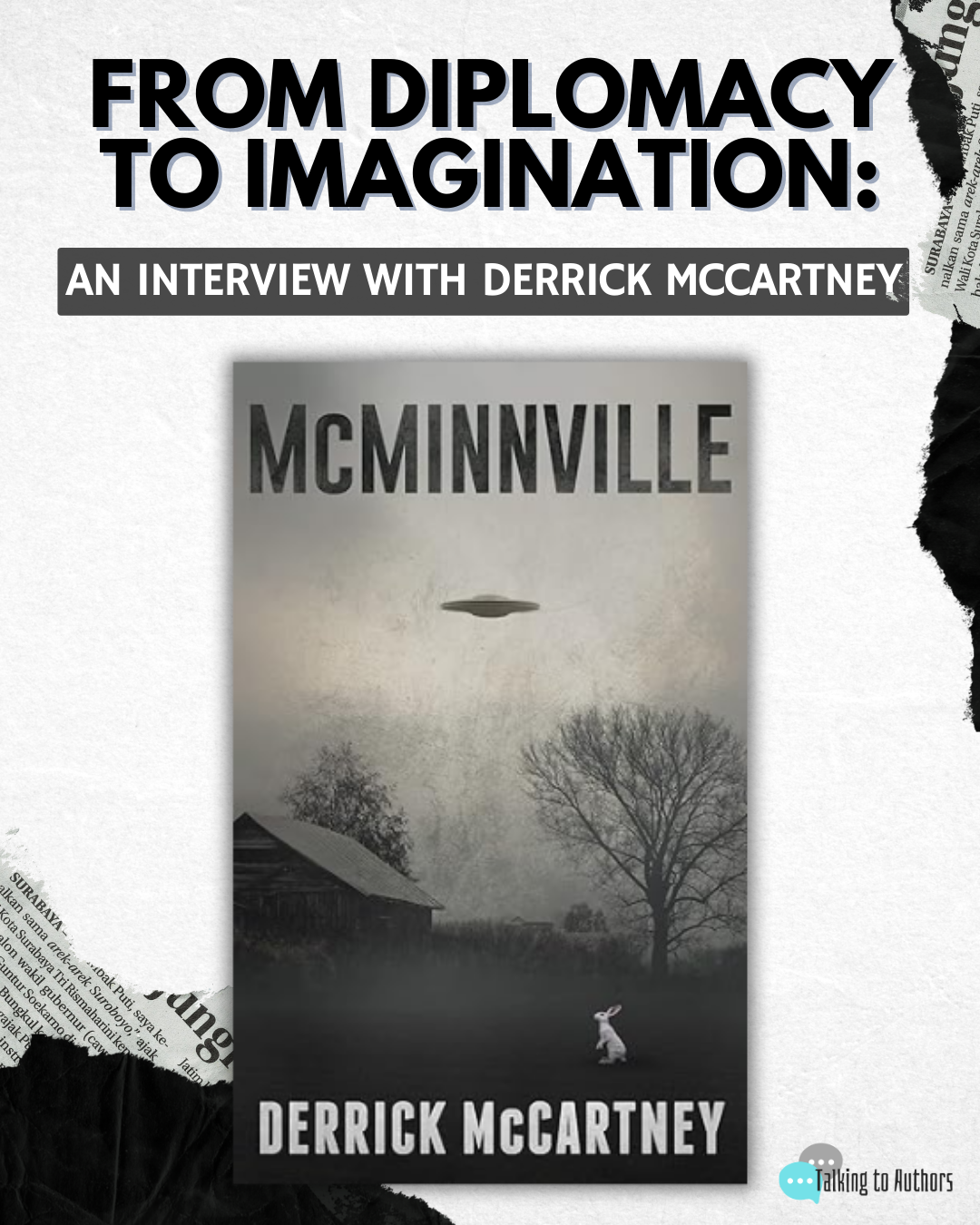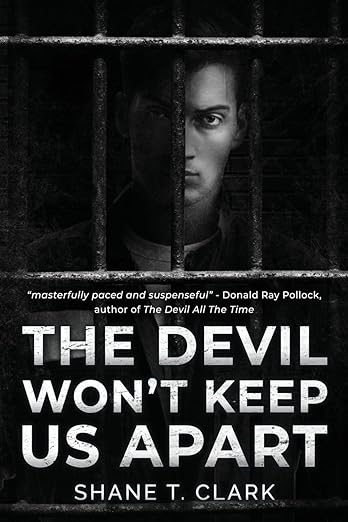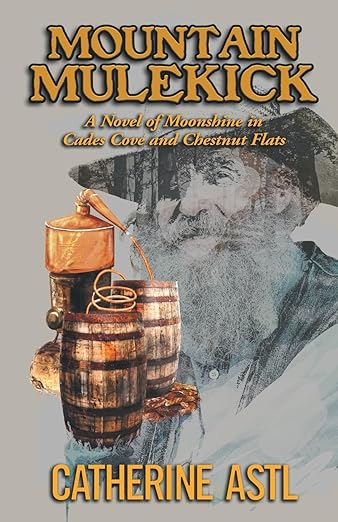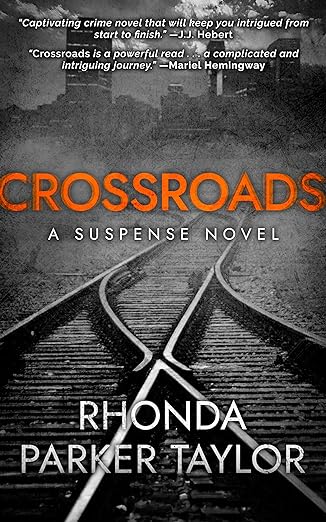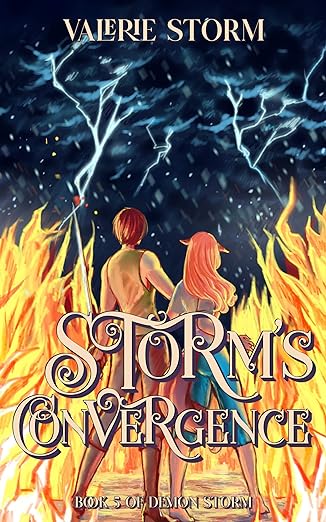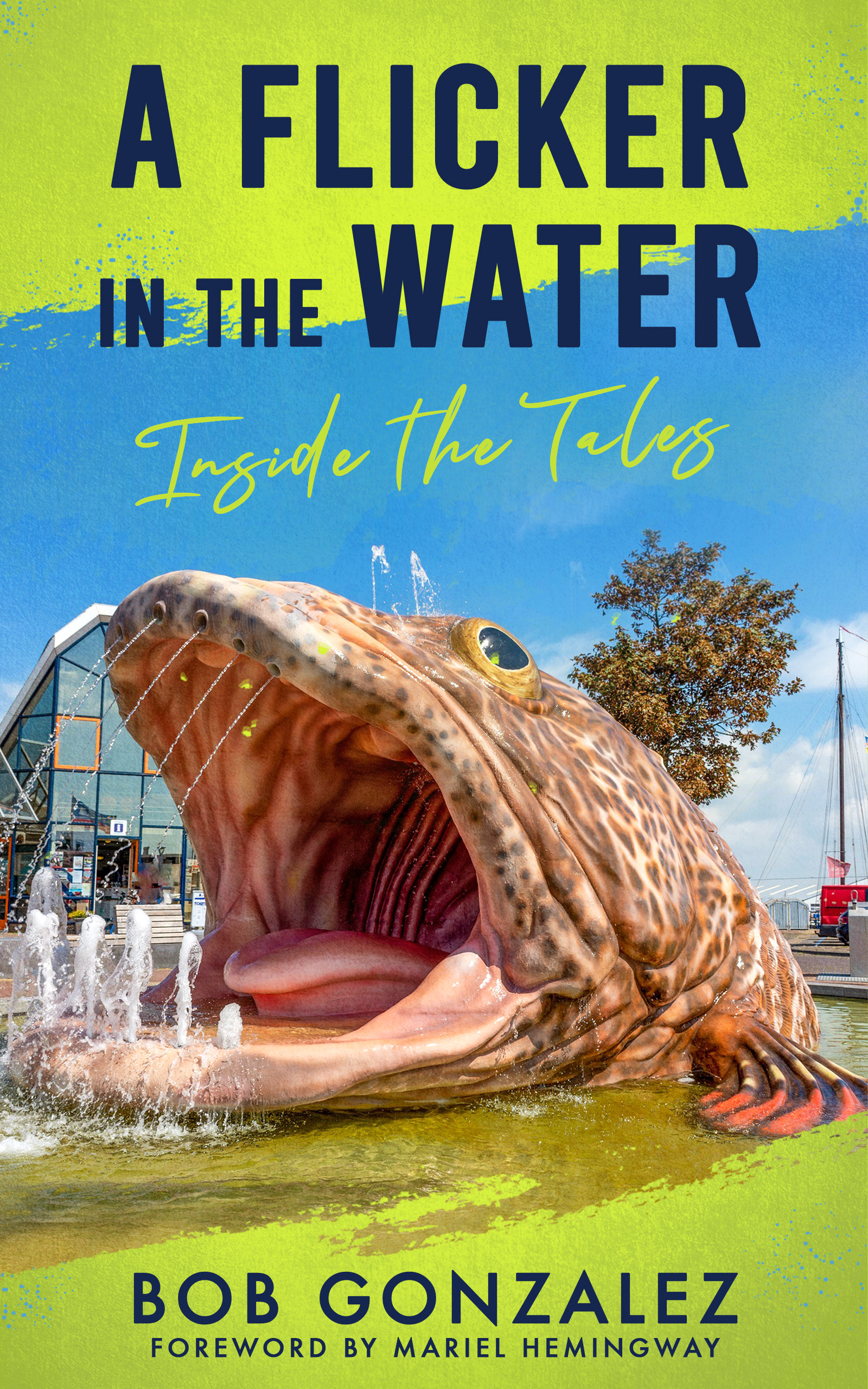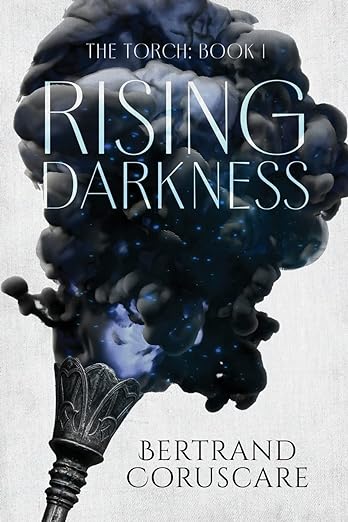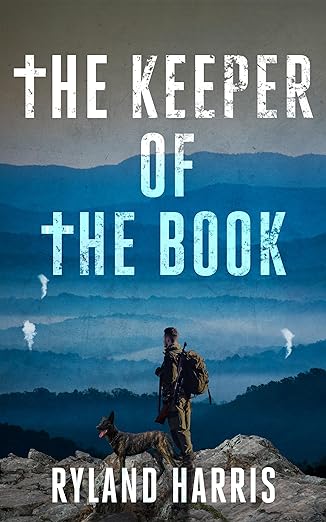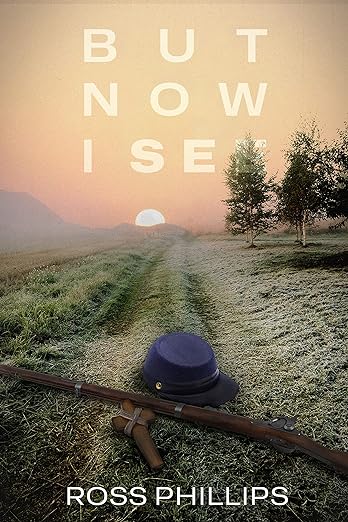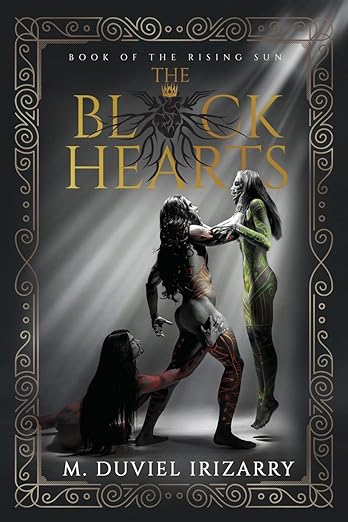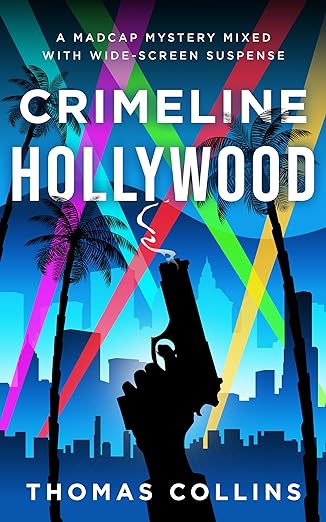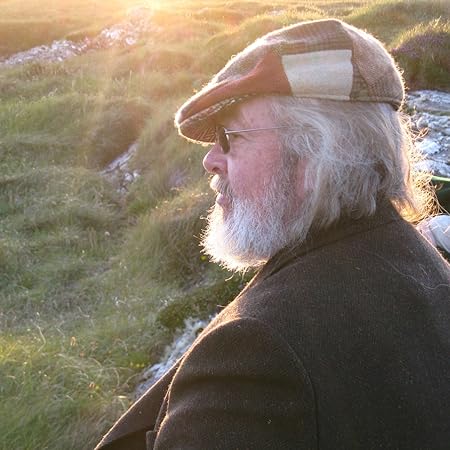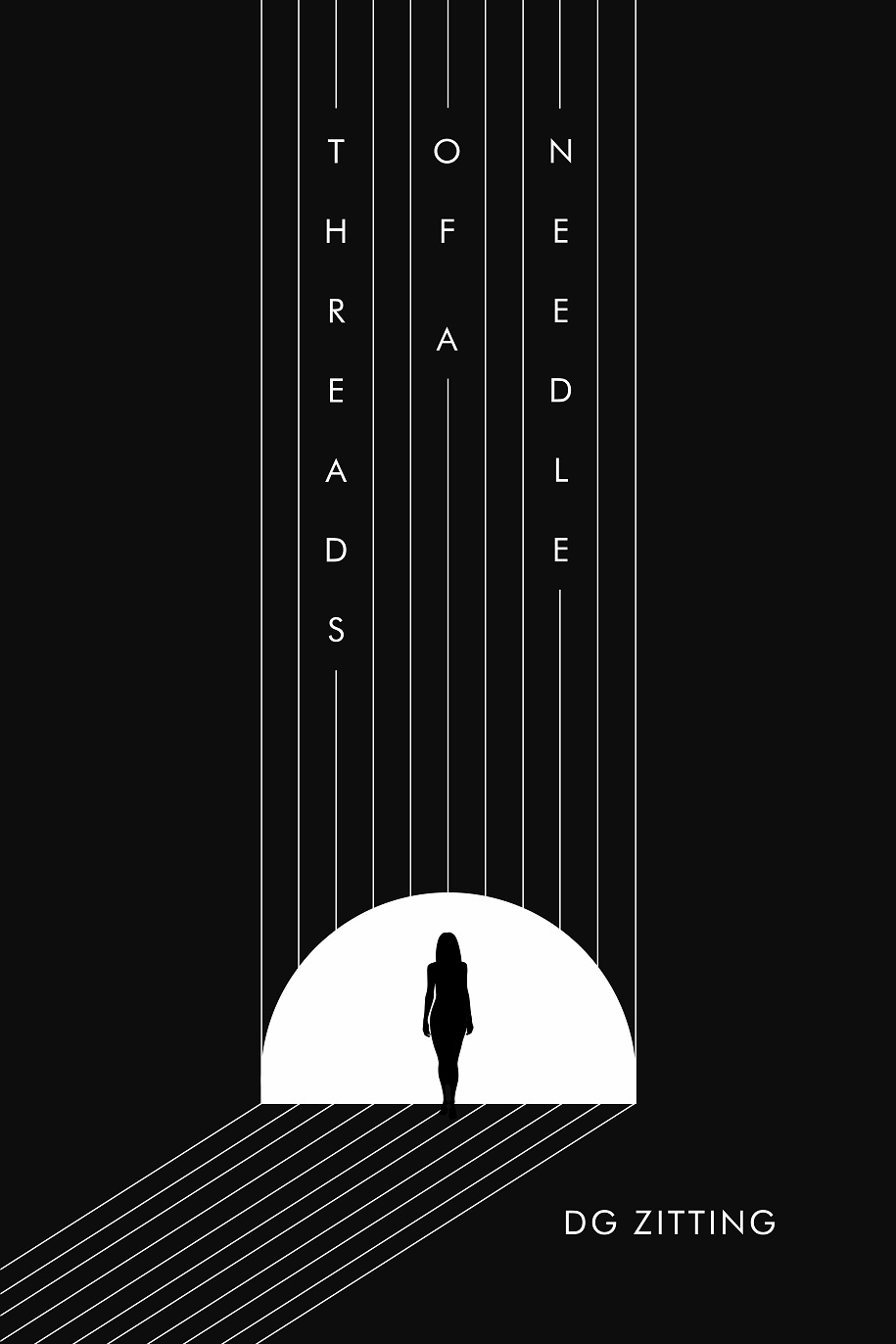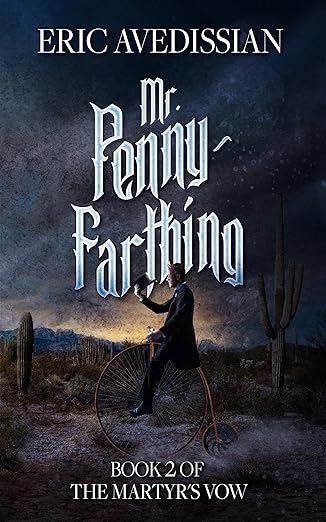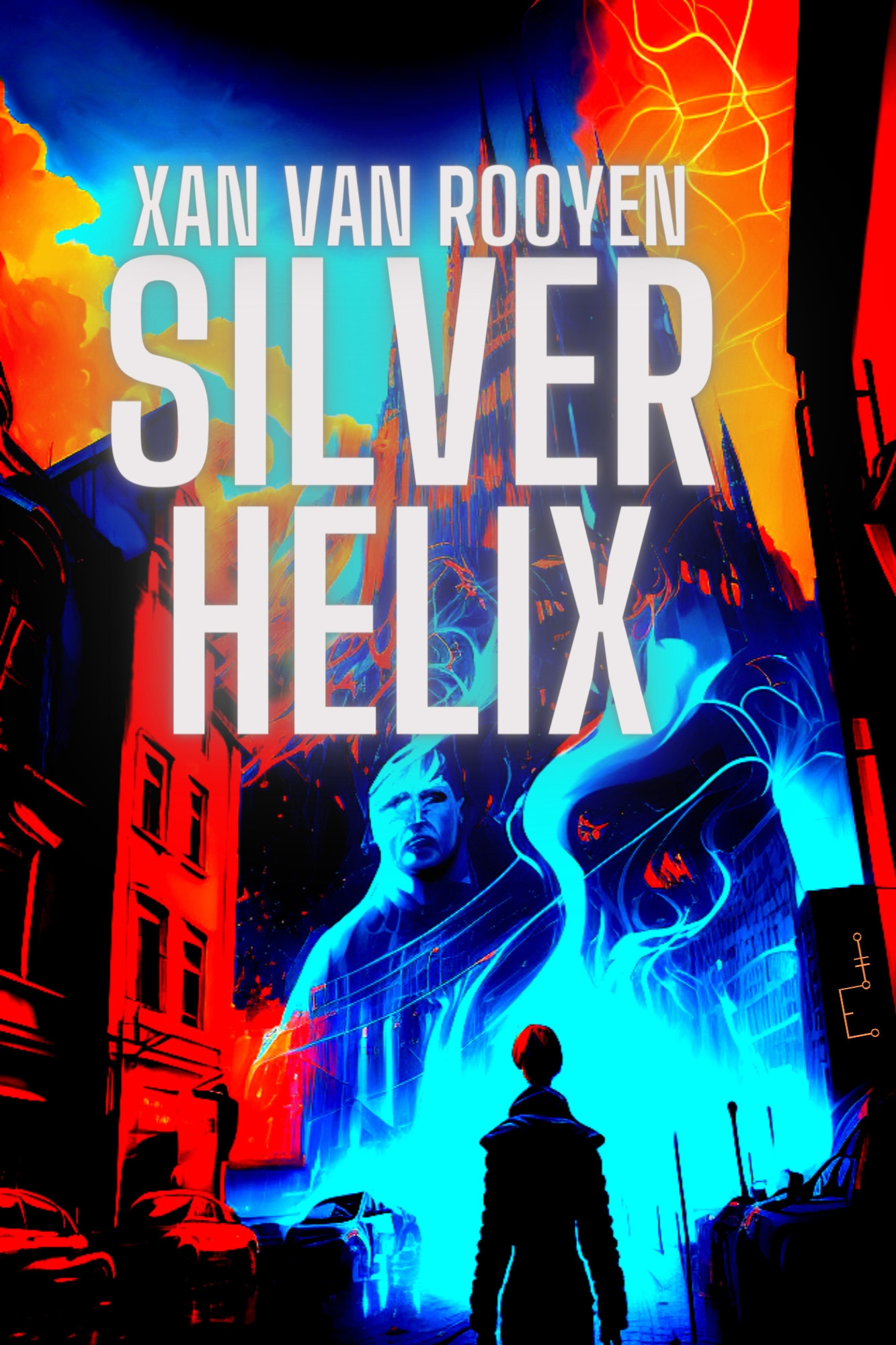Derrick McCartney, a native of El Paso, Texas, who later spent his formative years in Tennessee before relocating to the bustling Washington, DC area, has followed a unique path through life. Armed with a degree in Soviet and East European studies, McCartney’s journey led him to unexpected territories, transforming him into a recognized authority on North Korea. Following a stint in the United States Government, he channeled his expertise into a prolific career within defense think tanks. Renowned for his insightful publications on international security affairs under his true identity, McCartney now ventures into uncharted literary terrain with his inaugural foray into fiction, McMinnville. In this interview, we’ve asked Derrick some questions about himself and what let him to begin his writing career.
Tell us a little about yourself. Where were you raised? Where do you live now? Do you have any pets?
 I was born in El Paso, Texas and raised in Tennessee before moving to the northern Virginia area. After spending three years in the Soviet Union for work in the early 1980s, I returned to the Alexandria, Virginia area where I live today. Since leaving the government, I have worked in the defense think tank world focusing on issues related to adversaries, how they think, make decisions, etc…I don’t have any pets, although I grew up with dogs, cats, mice, gerbils, hamsters, and fish. As for interests, I grew up on a steady diet of Twilight Zone and spy and apocalyptic movies, such as Fail Safe, Dr. Strangelove, and The Manchurian Candidate. These days, my movie tastes tend to focus on relationships and character driven movies, such as Before Sunrise.
I was born in El Paso, Texas and raised in Tennessee before moving to the northern Virginia area. After spending three years in the Soviet Union for work in the early 1980s, I returned to the Alexandria, Virginia area where I live today. Since leaving the government, I have worked in the defense think tank world focusing on issues related to adversaries, how they think, make decisions, etc…I don’t have any pets, although I grew up with dogs, cats, mice, gerbils, hamsters, and fish. As for interests, I grew up on a steady diet of Twilight Zone and spy and apocalyptic movies, such as Fail Safe, Dr. Strangelove, and The Manchurian Candidate. These days, my movie tastes tend to focus on relationships and character driven movies, such as Before Sunrise.
At what age did you realize your fascination with books? When did you start writing?
My fascination with books goes back to my elementary school days. The first book my mother ever read to me was Walter Lord’s Titanic, which both horrified me and turned me onto reading. I got my first library card to the Richland Park Public Library in Nashville, TN when I was seven. By the time I was in high school, I was writing short stories and trying to write a novel. I had several ideas, but nothing ever went beyond fifty pages.
Then during COVID, I came up with the idea of a detective looking into an old UFO case that leads him down the path of a hidden mystery. I wrote McMinnville in six months, and it was published by MindStir this past May. Since then, I have written three other novels and am finishing up my fourth. I plan to publish one book per year for the foreseeable future. The novels span the genres from SCI-FI, Mystery, and Romance. In addition, I have published several non-fiction books and articles on international security affairs under my real name.
Who are your favorite authors to read? What is your favorite genre to read? Who inspires you in your writings?
I like Stephen King, especially his more philosophical or science-based novels, such as The Stand or The Langoliers. For romance, I am enjoying the writing of Cara Bastone and Fiona Lucas. For Lad Lit, I am into Nick Hornby, Mike Gayle, and Jonathan Tropper. I draw inspiration for my own writing from a wide variety of literature. For McMinnville, I was inspired by Whitley Streiber (Communion, Aliens) and Gillian Flynn (Gone Girl). Living in Wonderland, the sequel to McMinnville which will be published later this year, is influenced by Lewis Carroll’s Alice in Wonderland. Writer’s Block, which will be published in 2024 or 2025, draws inspiration from Richard Matheson’s I Am Legend, Isaac Asimov’s The Last Man on Earth, and Andy Weir’s The Martian.
Tell us a little about your latest book.
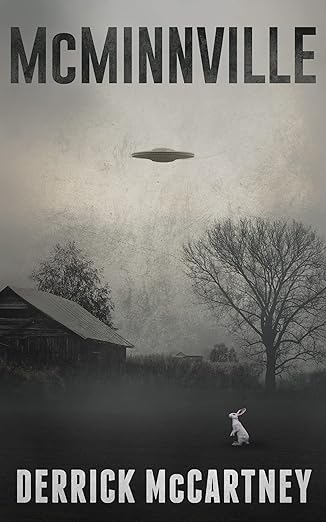 Some of the best science fiction and paranormal mysteries are ones that are firmly rooted in the normal, everyday lives of the character(s), not in another world or sometime in the distant future. The otherworldly character of the story slowly emerges as it would in real life, creeping into the consciousness as opposed to a great reveal. McMinnville is written in such a manner. It is written in the third person and has an introspective point of view so the reader can come to grips with the strange phenomenon and the mystery at the heart of the novel alongside the major character.
Some of the best science fiction and paranormal mysteries are ones that are firmly rooted in the normal, everyday lives of the character(s), not in another world or sometime in the distant future. The otherworldly character of the story slowly emerges as it would in real life, creeping into the consciousness as opposed to a great reveal. McMinnville is written in such a manner. It is written in the third person and has an introspective point of view so the reader can come to grips with the strange phenomenon and the mystery at the heart of the novel alongside the major character.
The novel’s title comes from a small town in Oregon where two iconic photographs of a “flying saucer” were taken by a farmer and his wife on the evening of May 11, 1950 (you can look up the photos online). The story focuses on a retired detective (Ray Baker) and his quest sixty years later to pin down the legitimacy of those two photographs: were they a clever hoax or pictures of a truly strange flying craft. His investigation takes him across the country and back as he digs through musty archives and interviews retired government insiders, scientists, and intelligence operatives. As his investigation into the cold case unfolds, he comes across another mystery that took place on the same day just a few miles from where the photos were taken.
This mystery borders on the unbelievable and if true rewrites human history and basic science as we know it. The closer he gets to solving this second mystery, the more he becomes ensnared in a phenomenon over which he has no control.
In addition to enjoying a good mystery, I hope it gives the reader something to think about. Everyone has the individual responsibility to make the choice between the real world and an artificial world. This novel takes this point to the extreme, but as we age from children to adults, human beings construct a narrative about how the world works. We should not assume that that narrative is always right.

